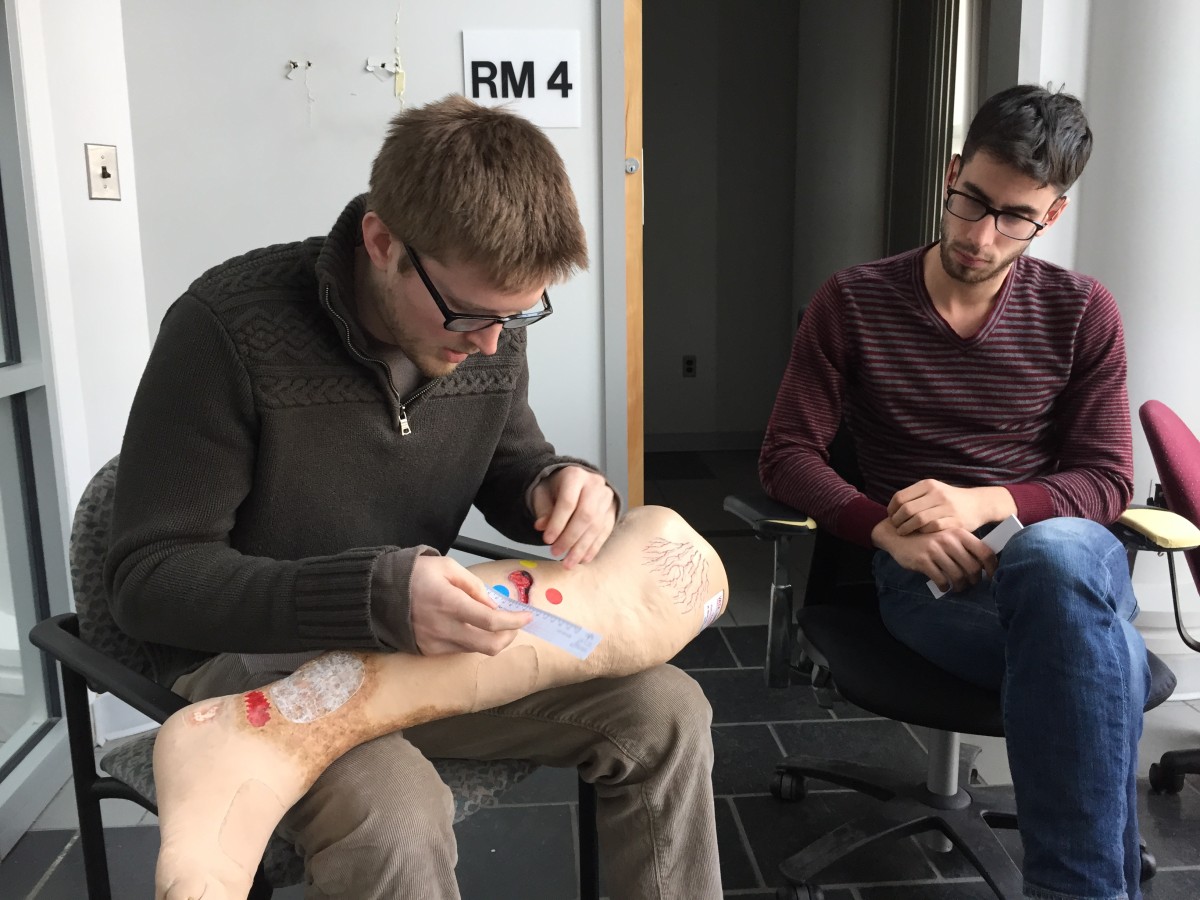When treating chronic wounds for patients in long-term care, nurses and doctors still rely on rulers to track the size of the wound. Trouble is, wounds like pressure ulcers and diabetic ulcers don’t follow a straight line.
While completing master’s studies at Johns Hopkins’ Center for Bioengineering Innovation and Design (CBID), cofounders Kevin Keenahan and Josh Budman saw the rulers being used in the clinic firsthand.
Using medical imaging and machine learning to track wounds.
“We noticed they were documenting these organic shaped wounds with rulers,” said Budman, who is Tissue’s CTO. “The fact that they were using this tool which is so inaccurate and has a different shape every time was very alarming to us.”
Then they dug into the statistics and found some alarming error rates. According to data, two nurses measuring the same wound will be different by a margin of 16-50 percent. Beyond measurement, the look of a wound also changes over time.
Along with former Johns Hopkins surgeon Gabriel Brat, Keenahan and Budman set out to develop a tool that uses medical imaging and machine learning to track the wounds. The result is a mobile app and web dashboard for medical professionals.
With the pictures provided in the app, Tissue tracks the edge of a wound, and how it changes shape over time, along with other features.
“Once we have the edge we can track, we can now do all sorts of data analytics on whether the therapy is working or not,” said Keenahan, the company’s CEO.
Having this type of objective data is important for treatment because doctors make treatment recommendations based on what they know.
“There are best practice decisions based on the data they acquire,” Budman said. “If that data is riddled with noise and error, then they can’t even apply their decisions appropriately.”
“Bad data in, bad data out,” Keenahan added.
The cofounders believe the technology will be especially useful in rural areas, where one wound specialist is often designated for several counties. Providers would have a subscription, and Tissue Analytics would take a percentage when doctors are reimbursed for using the system.
Since the cofounders began work on the project, the Tissue Analytics team has grown to five full-time employees, including the recent hire of Sudarshan Ramenahalli as Lead Algorithm Scientist. The company closed a $750,000 seed round in January. To further develop the product, they are currently working with Johns Hopkins Medicine’s Home Care Group to test how nurses will take to the app.
With roots at Hopkins, the team opted to move back to Baltimore when they completed DreamIt Health in Philadelphia in November 2014. When Technical.ly Baltimore visited the team in February, they were working out of the cafeteria of the former University of Maryland Specialty Hospital off of Light Street in South Baltimore.
That building is slated for new development, so they’re now set to move to FastForward East near Hopkins’ medical campus.
Keenahan and Budman are quickly becoming public faces of a renewed effort by Johns Hopkins to champion the startups that grow out of university research. They believe the quick succession of programs they completed could become a “perfect pathway” for other tech entrepreneurs.
As students at Hopkins’ CIBD, Keenahan and Budman saw the needs around wound care firsthand in the clinic, and received training on how to develop medical technology.
With the product concept in place, they then entered the DreamIt Health accelerator in Philadelphia with a clear focus on building the business. Keenahan said DreamIt proved to be “extremely effective” as a launchpad for fundraising, and they used the majority of the time to identify pilot sites and build their network.
“The combination of CBID and DreamIt is an extraordinarily effective relationship,” Keenahan said.







